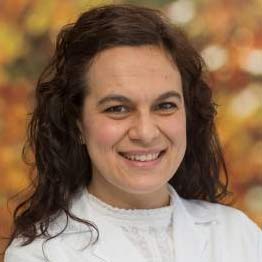05/06/2019
Published in
Diario de Navarra
Juana Fernández Rodríguez
Environmentalist and professor at Degree in Environmental Sciences at the University of Navarra.
 Man has managed to modify the planet for his own benefit. Sometimes at an accelerated pace, creating serious environmental problems. These are the great challenges facing today's society: climate change, scarcity and leave quality of water for consumption, acid rain and a long etcetera. But it has a quality that can make it unique: "What makes the desert most beautiful is the well it hides somewhere..." (The Little Prince, 1943). That well in the desert can be called conscience and we can become, in this sense, educators.
Man has managed to modify the planet for his own benefit. Sometimes at an accelerated pace, creating serious environmental problems. These are the great challenges facing today's society: climate change, scarcity and leave quality of water for consumption, acid rain and a long etcetera. But it has a quality that can make it unique: "What makes the desert most beautiful is the well it hides somewhere..." (The Little Prince, 1943). That well in the desert can be called conscience and we can become, in this sense, educators.
Ever since I was a child, I have heard at home that when raising a child, parents or guardians should promote certain values in order to form people who know how to live in society. In the most environmental sense, respecting the environment is a first step towards this coexistence. Environmental quality affects us all and the better it is, the better our quality of life and that of future generations will be.
Today, June 5th, is World Environment Day, a wonderful opportunity to instill environmental values in children, but also in adults. On Saturday June 8th, the Science Museum of the University of Navarra will hold different activities at the Pamplona Planetarium so that everyone can learn -in a fun, educational and informative way- about the importance of respecting the natural environment. Among the most outstanding activities for that day are: exhibition of pieces from the Science Museum; workshops for making toys with reused materials; painting and coloring animals; observation of specimens with a magnifying glass; and a vegetable garden in your hands; among others.
The coming generations are the recipients of a unique inheritance: the Planet. We must commit ourselves to leave it in the best conditions for its use. But we must take a step forward: provide future inhabitants with the basic tools for its protection so that they can enjoy it in the best conditions.
"And what good does it do you to possess the stars? -And what good does it do you to be rich? And what good does it do you to be rich? It helps me to buy more stars" (The Little Prince, 1943). This boldly treated analogy can be likened to our current consumerism. Teaching a child that the environment matters, that is, that we should not consume everything we want or generate as much waste as possible, gives him a perspective that is alien to him, integrating him into an environment as a fundamental part of it and not as its core. In a fragment of The Little Prince (1943) we can read: "He was no different from a hundred thousand other foxes. But I made him my friend and now he is unique in the world".
For this reason, opportunities such as the celebration of World Environment Day can help us to reflect on our lifestyle and the values we pass on to our children: they are the pillar of future sustainability. Let us trust in their power to transform today's society: "The baobabs, before they grow, are very small" (The Little Prince, 1943).
Let's take care of the environment, but above all, let's take care of the new generations, because they will have the key to their future and to the Education that the following generations will receive. The training in values and care for the Earth is an investment: "What makes your rose more important is the time you have lost with it" (The Little Prince, 1943).
